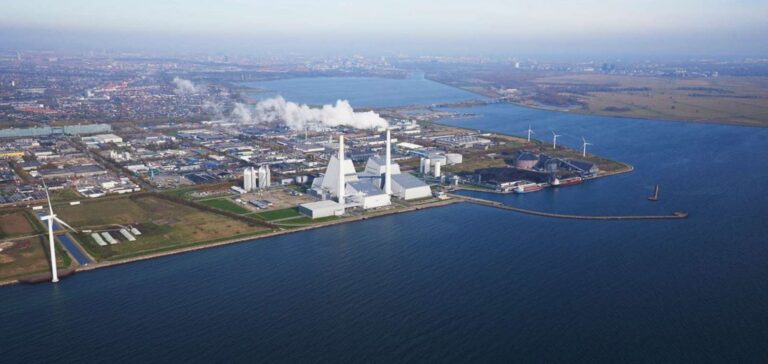In 2026, Denmark will inaugurate its first large-scale facility for the management of captured CO2. The Port of Aalborg and Fidelis New Energy have just unveiled plans for the new receiving facility, which in its initial phase will be able to process up to four million tons of CO2 per year.
Receive 10% of Denmark’s annual C02 emissions
In 2027, Fidelis New Energy will complete this large facility in Aalborg with additional facilities in Kalundborg. These facilities will allow for commercial storage or use of CO2 (CCUS). CCUS will play a critical role in achieving Denmark’s national reduction target by 2030. An industrial-scale CCUS company is thus established in Aalborg.
The plant will be located at Østhavnen in Aalborg, where it is expected to receive up to four million tons of greenhouse gases per year from 2026, with a possible doubling of capacity in the future. This corresponds to almost 10% of Denmark’s annual CO2 emissions from all sources, as well as half of the country’s potential capturable CO2. This project is the first of its kind in Denmark and the first in Europe for Fidelis New Energy, becoming a crucial element for the management of captured CO2 in Europe.
Massive investments
As part of the creation of these new facilities, including 12 large storage cylinders and a pumping station, the Port of Aalborg is investing in the preparation of a new 270,000 square meter section as well as in the construction of a new quay. Fidelis and the Port of Aalborg estimate that approximately 200 ships per year will call at Aalborg to import CO2 from domestic and foreign emission sources. Once the facility is completed in Østhavnen in 2026, the imported CO2 can be used, for example, to produce green fuels through P2X technology or to improve growth rates in greenhouses through Fidelis’ currently patented CO2PowerGrow™ technologies.






















